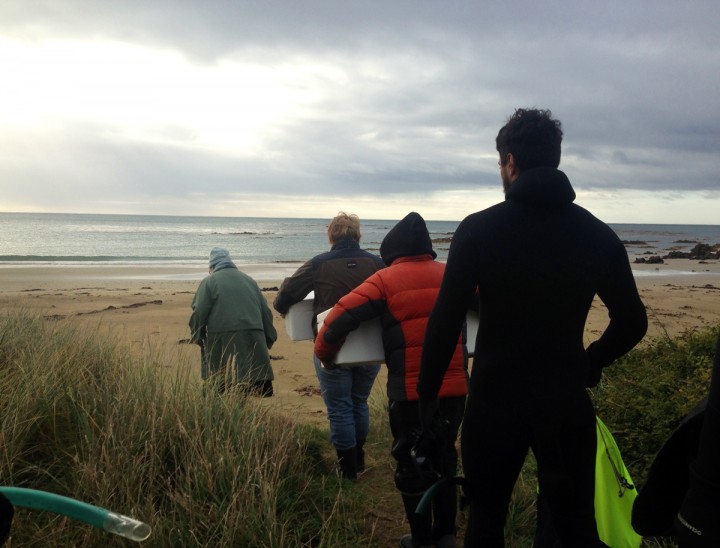Our Promise
In 1994, we made a promise to Rakiura Māori. We promised to use the lessons learned from our previous program – Kia Mau te Tītī Mo Ake Tōnu Atu – to assist fellow kaitiaki to assert rangitiratanga and kaitiakitanga to re-establish and maintain customary use of mahinga kai throughout Aotearoa.
Eight years later, in 2002, kaitiaki from Ōraka-Aparima Rūnaka brought forward a concern; they worried that Tangata Whenua were not fully able to apply kaitiakitanga (environmental stewardship) through existing legislative provisions like mātaitai and taiāpure, and that kaitiaki had insufficient resources and time to realise their vision.
This promise, combined with kaitiaki’s fear, led to a year and a half of dialogue, which began in 2006. During this time, a steering committee of kaumātua and researchers discussed what such a project should look like.
Our Launch
Te Tiaki Mahinga Kai (TMK) was formally launched at an inaugural national hui at Kāti Huirapa Ki Puketeraki Marae in Karitāne on July 26-27, 2007. Over 75 delegates helped to form the initial governance and direction of the project. Here, they agreed that it was too early to decide on long-term governance and research issues, and instead nominated an interim Rōpu (advisory board) to begin researching options to present at the next national hui.
On November 12-13, 2007, our second hui was held, where the Rōpu’s recommendations were heard and accepted. Over the years, TMK has taken on various roles and governance structures, based on these recommendations.
Our First Few Years
For the first few years, TMK’s Rōpu remained a key component of its decision-making and programming. This advisory group has since shifted to become an informal collection of passionate people – kaitiaki, researchers, students, and community members – who collectively make up the TMK Team.
From 2007-2010, TMK hosted “Whiriwhiri Whakaaro” (which means “Gathering Thoughts”), an e-discussion group, to foster open dialogue and question-and-answer sessions about issues most important to communities.
We also hosted a popular monthly seminar series called “Te Hao Mātauranga” (meaning “Netting Knowledge”), which featured formal presentations by Tangata Tiaki, fishers, managers and researchers about mahinga kai.
Additionally, TMK’s Rōpu was in charge of facilitating community submissions for Customary Protection Area proposals, to the Ministry of Fisheries, the Department of Conservation, and other agencies.
Reinvigoration
Now, years later, TMK is re-launching with invigorated energy, many new faces, but the same values and objectives.
TMK 2.0 will focuses on research (both matauranga and science), community tools (to assist kaitiaki to better manage their own resources the way they would like), and dialogue (to better inform community members about the past, present, and potential future of mahinga kai).
Tātai kōrero ka ngaro, tātai kōrero ka rangona.








